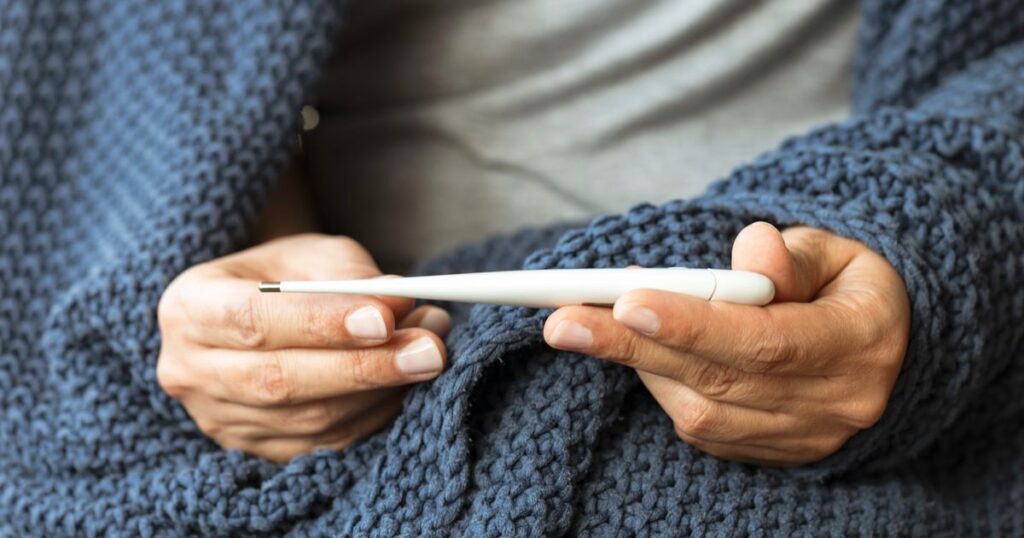🔴 Website 👉 https://u-s-news.com/
Telegram 👉 https://t.me/usnewscom_channel
The northern hemisphere is officially in cold and flu season. While many regions are seeing the typical pathogens, like influenza, COVID and respiratory syncytial virus (RSV) gain traction, China is battling an outbreak of a lesser-known respiratory virus.
According to Chinese news sources, human metapneumovirus (HMPV), a seasonal disease that causes cough, runny nose, sore throat and fever, is particularly active in kids ages 14 and younger right now. The illness is also being reported in India, Malaysia and other parts of the world.
Though HMPV might not be as widely-discussed as influenza or its cousin RSV, the respiratory virus has been around for centuries and regularly spreads around the globe ― including the United States. Per recent data from the Centers for Disease Control and Prevention, cases of HMPV increased slightly in the U.S. after the holidays, however, activity is low and in line with what we usually see this time of year.
“Cases occur every year in the U.S. and have been occurring throughout the respiratory viruses season,” Dr. Amesh Adalja, an infectious disease expert and senior scholar at the Johns Hopkins University Center for Health Security, told HuffPost.
Here’s how HMPV spreads and what to do if you get sick:
What exactly is HMPV?
According to Adalja, HMPV is one of the many viruses that cause the common cold. People usually experience classic cold symptoms — think: congestion and shortness of breath — but some may develop more severe symptoms or complications like bronchitis or pneumonia.
Kids who are infected for the first time, along with older adults and those with weakened immune systems, are more likely to experience severe symptoms. Most people are infected with HMPV by the age of 5 and therefore “have immunity that lessens severe disease and its impact,” Adalja said.
The illness is usually less severe than the flu and COVID, explained Dr. Richard Martinello, a Yale Medicine infectious diseases specialist. And it often looks so similar to other common respiratory illnesses that it can be hard to diagnose based on symptoms alone.
“There are no distinguishing symptoms of HMPV that differentiate it from the other myriad respiratory viruses,” Adalja noted.
How does HMPV spread?
Like many other respiratory viruses, HMPV spreads through respiratory droplets that are expelled into the air via coughs and sneezes. You can also get sick by touching surfaces where the virus is present, such as a countertop or doorknob, Martinello explained. It’s a hardy virus and can live on surfaces for several hours.
The incubation period, or the time it takes to develop symptoms after exposure, is between three to six days.
We see HMPV circulate year round, but cases tend to rise in the winter and early spring, according to the CDC. “The current increased activity of this virus in China appears to be the normal dynamics of this virus and not a particular cause of worry for the U.S.,” Adalja said.
What to do if you get sick with HMPV
There aren’t any antiviral medications designed to treat HMPV, nor is there a vaccine to prevent it. But the good news is that the infection, in most cases, will resolve naturally in a few days by riding it out at home. As such, most doctors don’t routinely test for HMPV and only swab for the virus if you have severe symptoms.
We Need Your Support
Already contributed? Log in to hide these messages.
If your symptoms don’t improve or worsen after a few days, contact a health care provider. Some people will need to be hospitalized, and those who do can be treated with supportive care, including oxygen therapy, IV fluids and corticosteroids.
For everyone else, the best way to recover is to rest, drink lots of fluids to stay hydrated, and take over-the-counter medications like pain relievers and cough suppressants.
